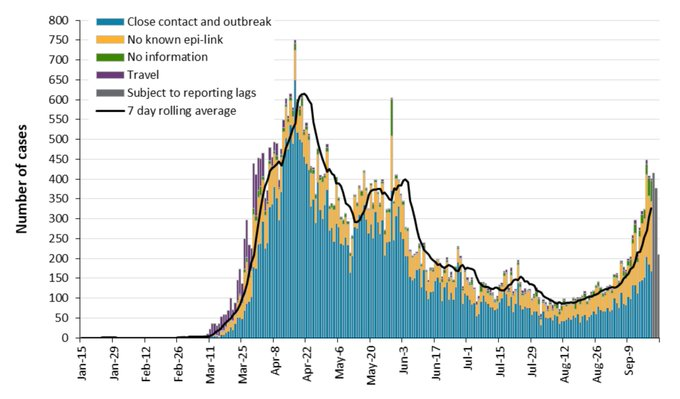The #ICRE2018 debate on the #BawaGarba case tightly links issues of #MedEd and #ptsafety — in the first 10 mins, have already heard about just culture, safe supervision, learning from mistakes, diagnostic uncertainty, systems failures & 2nd victim
Here are some more #MedEd #ptsafety topics being discussed at #ICRE2018 plenary:
Speaking up
Teamwork vs teaming
Handoffs
Fatigue and its impact on clinical performance
Psychological safety
Speaking up
Teamwork vs teaming
Handoffs
Fatigue and its impact on clinical performance
Psychological safety
Empirical data on patient safety incidents that involve residents:
Lack of supervision (~50%) and handoff problems (~20%) among the most common contributors to serious safety problems
Landmark article from 2007:
jamanetwork.com/journals/jamai…
#ICRE2018
Lack of supervision (~50%) and handoff problems (~20%) among the most common contributors to serious safety problems
Landmark article from 2007:
jamanetwork.com/journals/jamai…
#ICRE2018
Lots of talk about speaking up culture -- but it's complex.
The type of patient safety problem matters too -- residents more likely to speak up about systems problems than professionalism issues that contribute to #ptsafety problems @sginsburg1 #ICRE2018
qualitysafety.bmj.com/content/26/11/…
The type of patient safety problem matters too -- residents more likely to speak up about systems problems than professionalism issues that contribute to #ptsafety problems @sginsburg1 #ICRE2018
qualitysafety.bmj.com/content/26/11/…
Here's another sobering reminder for how much work is needed -- in 1993, already a call for greater attention to improving clinical supervision for #ptsafety jamanetwork.com/journals/jama/… #ICRE2018 

Now onto teamwork--in healthcare we from and disband teams multiple times a day, often working with new team members on a specific task and then sometimes never again.
We have to learn TEAMING skills (i.e., teamwork on the fly)
hbr.org/2015/12/the-ki…
#ICRE2018
We have to learn TEAMING skills (i.e., teamwork on the fly)
hbr.org/2015/12/the-ki…
#ICRE2018
Helpful mnemonic for how attending can make safe supervision explicit
S-set expectations for when to be notified
U-uncertainty a time to contact
P-planned communication
E-easily available
R-reassure to not fear calling
B-balance supervision and autonomy
ncbi.nlm.nih.gov/pmc/articles/P…
S-set expectations for when to be notified
U-uncertainty a time to contact
P-planned communication
E-easily available
R-reassure to not fear calling
B-balance supervision and autonomy
ncbi.nlm.nih.gov/pmc/articles/P…
Was wondering when disclosure would come up -- we definitely need to prepare residents to discuss patient safety problems with patients and families -- because they are doing it already! (75% report they have disclosed in training)
jgme.org/doi/abs/10.430…
#ICRE2018
jgme.org/doi/abs/10.430…
#ICRE2018
So powerful when #MedEd guru @ChrisWatling3 can articulate so clearly the importance of empowering residents to identify systems issues and gaps in care that need attention and finding ways to improve upon them -- lends legitimacy to importance of #QI in #MedEd #ICRE2018
Yesterday I had a chance to facilitate an #ICRE2018 session with @boedudley and we talked about structural changes in the learning environment to engage learners in systems change, #ptsafety, #QI....here are some concrete suggestions:
Resident quality and safety councils:
Key elements:
1) Put residents in charge / keep engaged
2) Make it multidisciplinary
3) Resources, resources, resources
4) Highlight resident work
5) Hospital-wide resident representation
6) Evaluate outcomes
jgme.org/doi/abs/10.430…
Key elements:
1) Put residents in charge / keep engaged
2) Make it multidisciplinary
3) Resources, resources, resources
4) Highlight resident work
5) Hospital-wide resident representation
6) Evaluate outcomes
jgme.org/doi/abs/10.430…
Chief Resident in Quality and Safety -- most mature program is through the @DeptVetAffairs #ICRE2018
va.gov/HEALTHCAREEXCE…
journals.lww.com/academicmedici…
va.gov/HEALTHCAREEXCE…
journals.lww.com/academicmedici…
Adding explicit language to promotions criteria to support advancement on basis of #QI, need to:
1) Add specific language
2) Expand definition of scholarship
3) Create framework to document evidence of impact
amjmed.com/article/S0002-…
#ICRE2018
1) Add specific language
2) Expand definition of scholarship
3) Create framework to document evidence of impact
amjmed.com/article/S0002-…
#ICRE2018
Appoint bridging leaders (like @KCaverzagie) — individuals who have a formal role that bridges the clinical and educational institutions #ICRE2018 jgme.org/doi/10.4300/JG… #ICRE2018
Introduce resident-sensitive #QI metrics — patient outcomes that are sensitive to the work that residents do. One of my favourite papers by @DrDanSchumacher describes this concept further #ICRE2018 journals.lww.com/academicmedici…
Financial incentives to engage residents in #QI. @UCSF has been doing this for 10 years. They pay each resident up to $1200 per year if they achieve program-wide QI metrics #ICRE2018 journals.lww.com/academicmedici…
• • •
Missing some Tweet in this thread? You can try to
force a refresh










